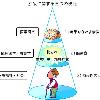

- » Panthers QB Matt Moore practices following concussion, could play vs. Buccaneers
- » Advances in finding Alzheimer's disease show the need for drugs to stop or slow its course
- » Police: 3 locked Ind. woman with dementia in tiny room for months to steal her monthly checks
- » NCAA injury surveillance report shows football concussions leveled off from 2004-2008
- » Even at the Super Bowl, there's new talk about increased concussion awareness in the NFL
- » HEALTHBEAT: Study will put to test growing evidence linking high blood pressure to dementia
- » New warnings linking concussions to brain injury come too late for ex-La Salle football player
Tags: Dementia View |
Bcg dem gif 18 Mar 2002 09 03 7k dementia html 18 Mar 2002 09 03 7k HeartWaveS gif 18 Mar 2002 09 03 10k dementia gif 18 Mar 2002 09 03 22k Apache 1 3 33 Server at web cc yamaguchi u ac jp Port 80 Topics: Health Tags: Dementia View |
Image 1 Algorithm for the differential diagnosis in the evaluation of dementia Return to top of page Topics: Health Tags: Dementia View |
|||||||||
Topics: Health Tags: Dementia View |
Dementia (meaning "deprived of mind") is a serious loss of cognitive ability in a previously-unimpaired person, beyond what might be expected from normal aging. It may be static, the result of a unique global brain injury, or progressive, resulting in long-term decline due to damage or disease in the body. Although dementia is far more common in the geriatric population, it may occur in any stage of adulthood.
This age cutoff is defining, as similar sets of symptoms due to organic brain syndrome or dysfunction, are given different names in populations younger than adult. Up to the end of the nineteenth century, dementia was a much broader clinical concept.
Dementia is a non-specific illness syndrome (set of signs and symptoms) in which affected areas of cognition may be memory, attention, language, and problem solving. It is normally required to be present for at least 6 months to be diagnosed; cognitive dysfunction that has been seen only over shorter times, in particular less than weeks, must be termed delirium. In all types of general cognitive dysfunction, higher mental functions are affected first in the process.
Especially in the later stages of the condition, affected persons may be disoriented (disorientation) in time (not knowing what day of the week, day of the month, or even what year it is), in place (not knowing where they are), and in person (not knowing who they are or others around them). Dementia, though often treatable to some degree, is usually due to causes that are progressive and incurable.Citation neededdate=November 2009
Symptoms of dementia can be classified as either reversible or irreversible, depending upon the etiology of the disease. Less than 10% of cases of dementia are due to causes that may presently be reversed with treatment. Causes include many different specific disease processes, in the same way that symptoms of organ dysfunction such as shortness of breath, jaundice, or pain are attributable to many etiologies.
Without careful assessment of history, the short-term syndrome of delirium (often lasting days to weeks) can easily be confused with dementia, because they have all symptoms in common, save duration, and the fact that delirium is often associated with over-activity of the sympathetic nervous system.Citation neededdate=November 2009 Some mental illnesses, including depression (depression (mood)) and psychosis, may also produce symptoms that must be differentiated from both delirium and dementia.
Chronic use of substances such as alcohol (alcoholic beverage) can also predispose the patient to cognitive changes suggestive of dementia, although moderate intake may have a protective effect.




